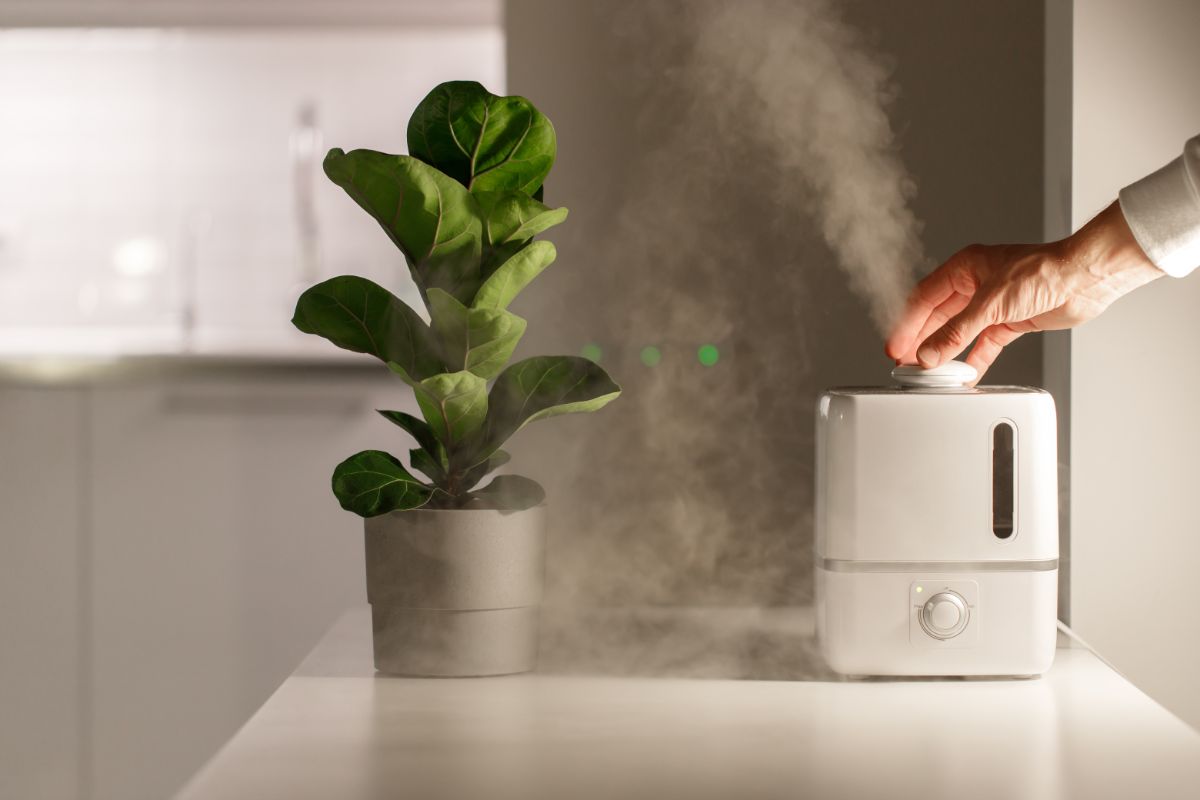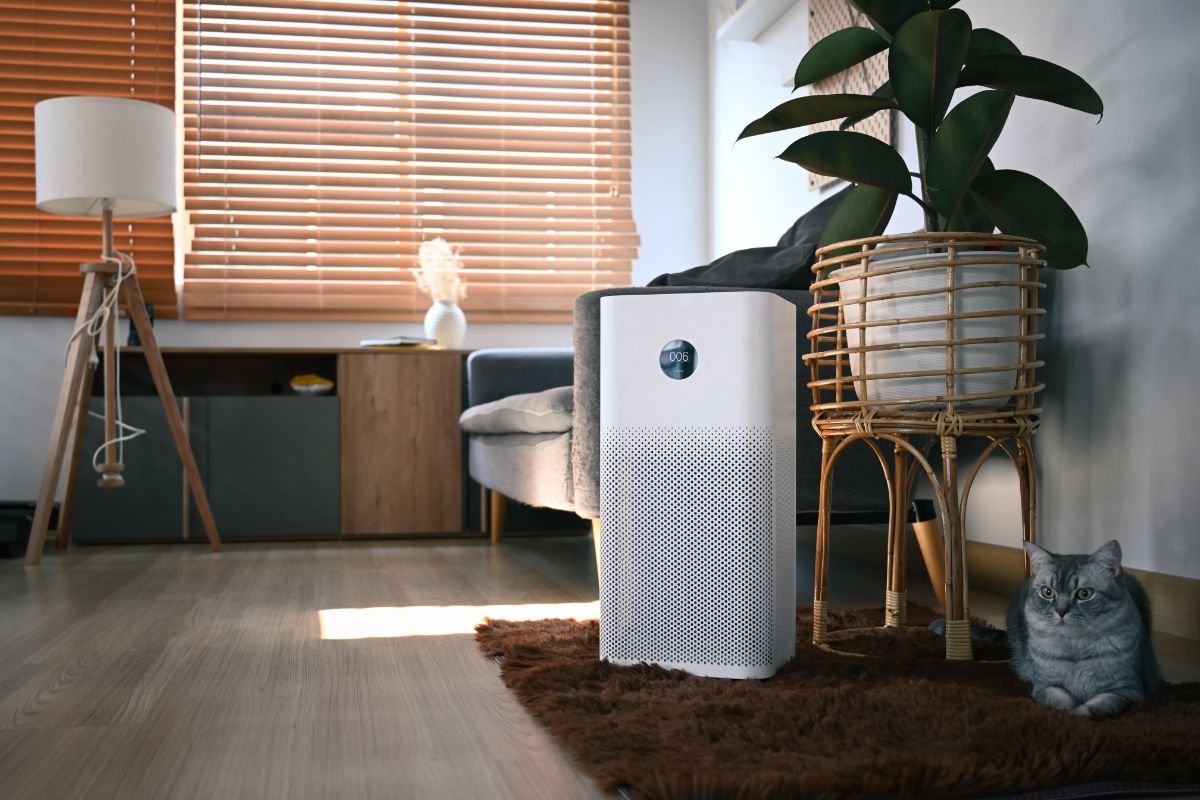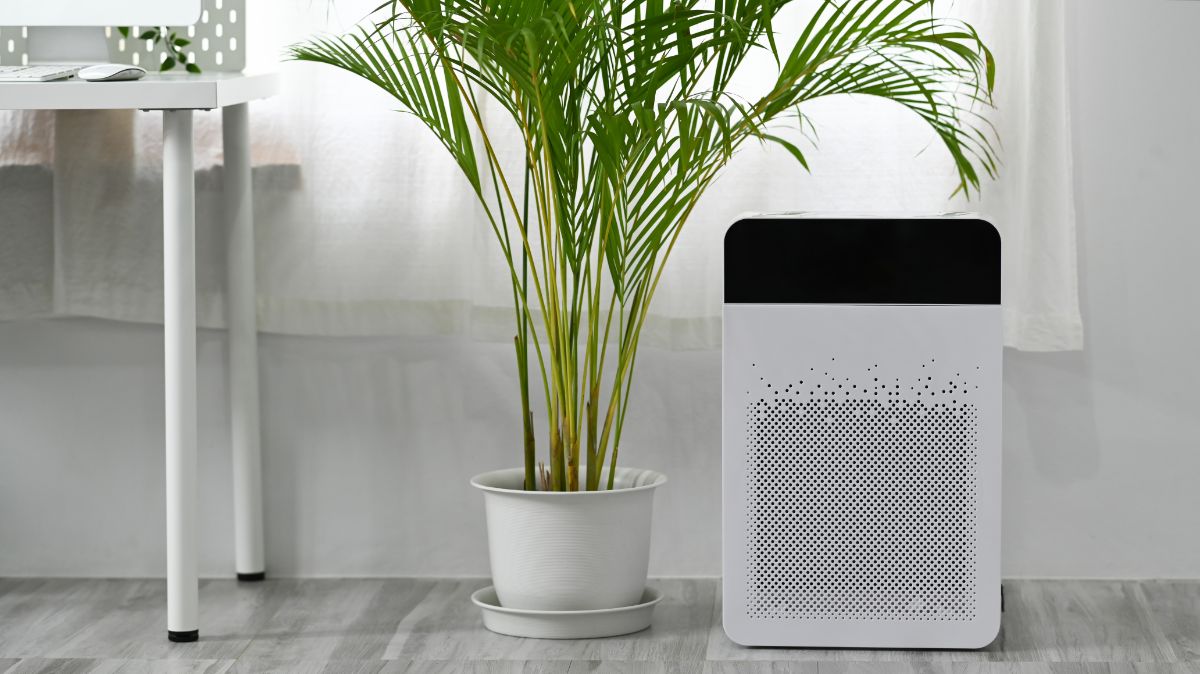What are the differences between an air purifier and dehumidifier?
- Basic functions
- Types
- Maintenance
When it comes to the variety of air treatment appliances on the market, it’s easy to get lost in translation. Are dehumidifiers and air purifiers the same? Or do they serve different purposes? Should you get one or the other — or both?
If you’re feeling a little bit lost, keep reading. In this post, we cover every difference between an air purifier and a dehumidifier to help you settle on the best appliance for your health needs.
Basic functions

The basic purpose of these two appliances is to minimize the number of harmful pathogens that are present indoors — but, the difference is how these appliances achieve this purpose.
Air purifiers work to clean your indoor air by pulling it in and circulating it through a series of filters. These are specially designed to only let air through, and trap airborne contaminants like dust, mold spores, smoke, dander, bacteria, volatile organic compounds (VOCs), and even viruses in their filters. It continuously cycles indoor air to remove as many of these contaminants as it can.
Depending on the model you choose, it can reliably trap and neutralize up to 99.97% of airborne contaminants down to 0.3 microns in size (more on this later). This can be very beneficial for those with preexisting lung conditions, allergies, or even those who just want to protect their good health.
On the other hand, a dehumidifier doesn’t use filters to do its job. Instead, it pulls moisture in, which is collected inside the device in an internal bucket. This lowers the room’s humidity levels down to a more ideal range (below 50%), which negatively affects the harmful pathogens in the air.
You see, microbes, bacteria, mold, dust mites, and other similar organisms need damp environments to survive and multiply. But this device prevents the humidity levels in a room from rising too high — which then prevents these pathogens from surviving.
As the humidity levels in your room go down, you should notice a less damp feeling indoors. There will also likely be less musty smells, as mold and mildew are removed.
Types
Air purifiers come in a variety of types. Each type can contain a variety of filters and cleaning functions, such as:
- HEPA Filtration — This is a very, very finely woven filter designed to capture at least 99.97% of particles as small as 0.3 microns in size. This is smaller than your hair (which is approximately 70 microns!). It captures dust, allergens, particulate matter, smoke, mold spores, viruses, and bacteria.
- Carbon Filtration — This filter is made of activated carbon material that traps gasses, odors, and VOCs in the air. It helps your room smell fresh and removes any chemicals that can hang around indoors.
- Negative Ionization technology — Emits negatively-charged ions into the air, which latch onto and weigh down particles. This causes them to be neutralized, or stick easier onto the air purifiers’ filters.
- UV Light — This is germicidal tech that kills mold, bacteria, viruses, and other microorganisms by disintegrating their molecular DNA structure.
The best air purifiers will have all of these features — like UV Care’s Super Air Cleaner Pro! This particular model also uses other revolutionary technology, such as a Photocatalyst Filter, an Antibacterial Nano Silver Ion Filter, and our patented ViruX® Technology. These additional filters ensure that toxic substances and viruses (such as those that induce colds, influenza, measles, and tuberculosis) are completely eradicated indoors.
Dehumidifiers come in different types, too! These include:
- Refrigerant — Uses a refrigeration process to cool a metal plate. The plate is used to condense air, which draws in moisture. The moisture then drips into a water collection tank.
- Desiccant — Uses a special material similar to the silica gel packets you find packaged with products like electronics and clothes. The dehumidifier has a wheel with this material, which turns slowly as air passes through, slowly absorbing moisture.
- Electronic — Uses a heat pump to generate a cool surface, which acts similarly to the metal plate refrigerant dehumidifiers use. The condensed water is drained outside.
Maintenance

Maintenance for both types of air cleaning appliances is fairly easy to do. For air purifiers, you need to replace the filter every few months, depending on the manufacturer’s instructions. Generally, these filters last 6 months.
For dehumidifiers, you need to clean their coils and collection buckets periodically. If the coils start developing frost, you may need to contact the manufacturer for replacements. Any metal plates should also be cleaned once a week. For some desiccant dehumidifiers, you may need to replace their absorbing material on an as-needed basis.
So, which one do I choose: an air purifier or a dehumidifier?
Both options are effective ways to keep your indoor air clean and comfortable. But, An air purifier may be best for you if:
- You have a health condition (especially respiratory issues) and need to have cleaner air to breathe easier.
- You want to reduce the number of allergens and/or pet dander indoors.
- You want an effective way of removing dust, mold spores, residual smoke, and other things that can make the air indoors feel heavy and uncomfortable.
- You want to remove odorous smells, which can be caused by mold, pets, smoke, etc.
On the other hand, a dehumidifier may be best for you if:
- You want to get rid of the musty, moldy smell in the room.
- You want to reduce the spread of mold and dust mites.
- You have a health condition (like eczema) that gets worse with exposure to excess humidity.
Key Takeaway
By now, you should have a good understanding of the differences between an air purifier and a dehumidifier. While both can help improve the air quality indoors, air purifiers tend to offer more benefits to your health as they eradicate a wider variety of pathogens and allergens.
And, if you’re looking for the best air purifier, message UV Care. We are the leading air purifier supplier in the Philippines — thousands of homes and businesses have chosen our products for their ability to effectively safeguard their health! And, we can help you choose the perfect model for your specific needs, so don’t hesitate to reach out today!

